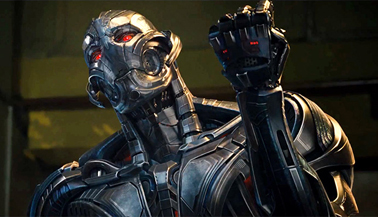|
|
Top Film Industry Stories of 2015:
|

|
Lionsgate chose to do what Lionsgate does. They split a trilogy of books into four movies. Whether you love or hate this tactic, the results were emphatic with the vampire flicks. The final franchise flick, The Twilight Saga: Breaking Dawn – Part Two, became the highest grossing title of the series, earning approximately $830 million worldwide. The path was clear for The Hunger Games. In order to maximize box office, the distributor would split the final novel, Mockingjay, into two films. And that’s where Lionsgate ran into problems. New at BOP: Share & Save
![]() Tweet
Tweet
![]() Print this column
Print this column
Consumers have grown smarter about cynical money grabs during the social media era. Films that once did extremely well domestically even when they were questionable in terms of quality have begun to struggle. Once word gets out that a feature is a disappointment, audiences sour on watching in the theater. After all, they can watch something better if they stay at home and watch Netflix. Studios are now competing with their own back catalog of digital content.
This emerging customer behavior has dangerous ramifications for movie distributors. Consider the case of The Avengers. The first series of Marvel titles introduced new characters into the universe, eventually building to that seminal moment when the entire group came together to save the universe from invading aliens. That’s as epic in scope as the realm of storytelling allows.
The second Avengers title has…a killer robot. Now, I’m not denigrating that as a concept. After all, it worked great for Terminator (or at least it did prior to 2015’s Terminator: Genisys). I’m simply pointing out that no matter how wonderful James Spader is in voicing the role of Ultron, the story isn’t new and original enough to stand out in the wake of the original film. That one had stature and scale. This one has twisted humor and – if we’re being honest with ourselves – more of the same in terms of drama and action.
|
Advertisement |
From an early point, audiences sensed that Age of Ultron lacked the originality of its predecessor. While they warmly received the film with an opening weekend of $191.3 million, that tally fell short of the first title despite three years of box office inflation. Eventually, the sequel managed $459 million in North America, the seventh largest box office total ever at the time.
The problem is that two later 2015 releases, Jurassic World and Star Wars: The Force Awakens, bested that total and quite handily at that. Age of Ultron didn’t just falter in matching those other sequels. It fell almost $200 million short of the mark. That’s a staggering difference considering how hot the franchise was just a couple of years ago.
In fact, the second Avengers movie only beat Iron Man 3 by $50 million. And in terms of global box office, the situation is similar. Dinosaurs and The Force also proved more popular worldwide. Age of Ultron fell $115 million short of its predecessor and only $190 million ahead of Iron Man 3, meaning that the franchise stopped expanding.
[ View columns by David Mumpower ] [ Email this column ]

|
|
|

|
Wednesday, May 8, 2024
© 2024 Box Office Prophets, a division of One Of Us, Inc.

